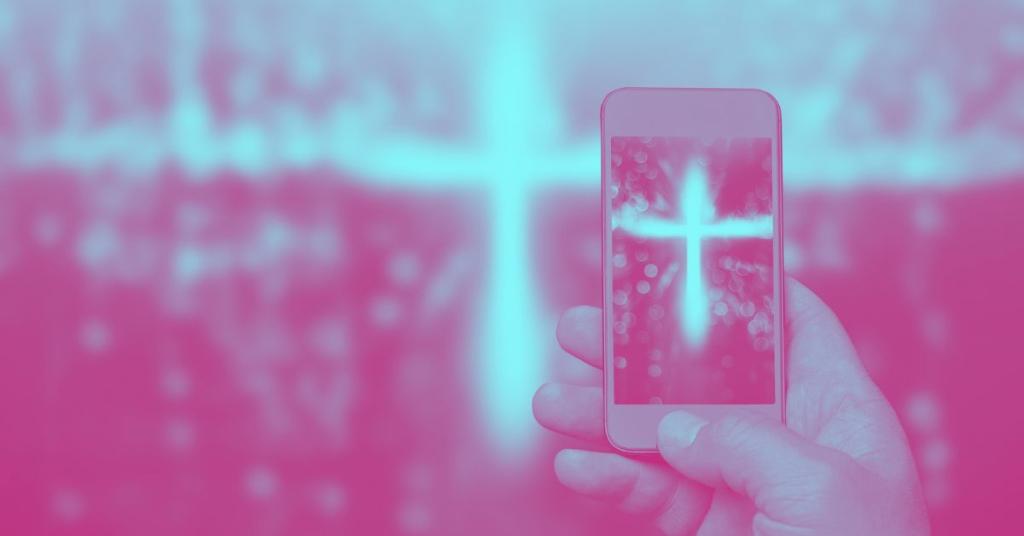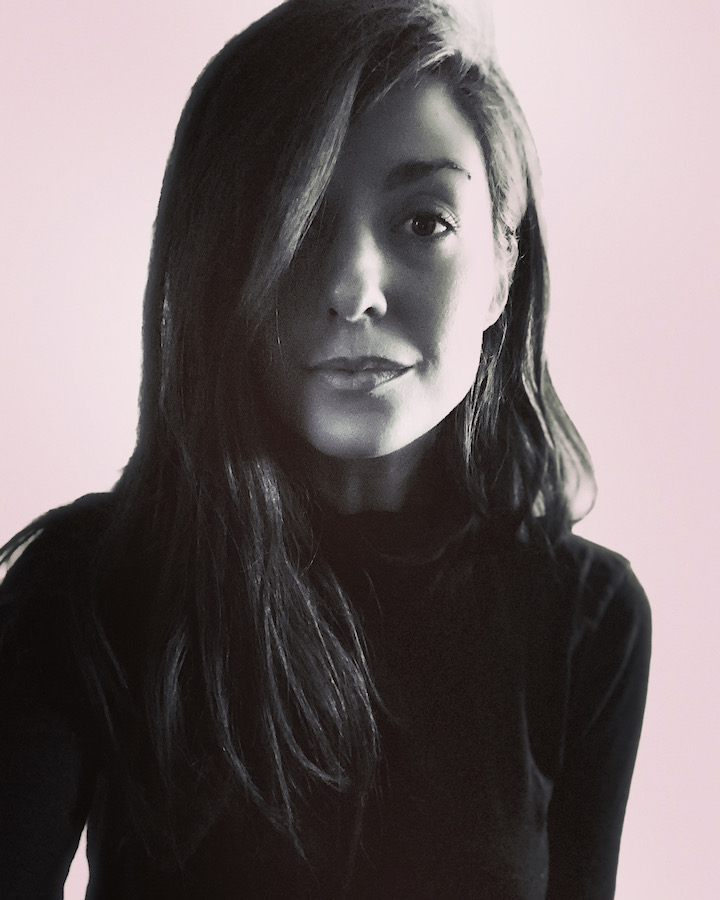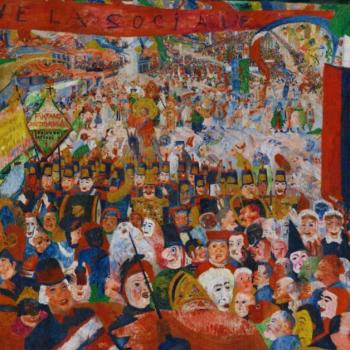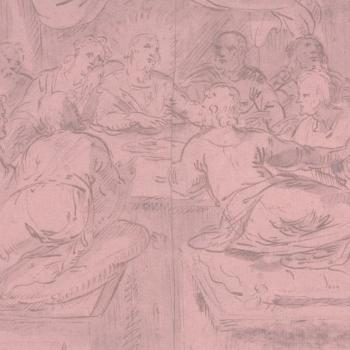
If you follow me on Instagram you will be familiar with my bio lines, one of which reads, ‘Post Christian thinker and writer.’ Because of this special mention I often get messages from people asking me to explain what this means. This is always super difficult. How can I possibly explain in a DM what it means to be post Christianity? All of the subtleties and shadows, all of the complexity, the blood, sweat and tears of even getting to this place of language use, all the things it can and cannot mean, and revelations that must be felt and lived rather than modulated through rhetoric that can’t quite keep up. Still, most of the time I take the opportunity to answer with a limit and caveat that it is a DM conversation.
I recently had another such question slide into my DMs. They wanted to know what it means to be post Christian, as I describe myself as such a thinker and writer. My initial response,
“Hello, I get asked this question a lot. And the truth is it is extremely complex and nuanced, and different people use it in different ways. But for me it is simply moving past the big god in the sky, the interventionist god, and moving onto a faith that is characterized by all that is unknown rather than known. Focusing more on theological realities, rather than empirical literal ones, moving on from questions of being and objectivity to event and experience. This may seem a little abstract and that is because it is difficult to define.
I then pointed to some articles I have published that might be more helpful than a DM conversation. We went back and forth a short while longer before discovering that, of course, we see things differently and the departure is certainly the reality or lack thereof, or rather the irrelevance and/or obsoleteness of being. Before we ended our friendly, short exchange, they acknowledged that it was good that I have found ‘my way of faith.’ To which I responded, “I think I am ever finding it. I don’t think I can ever say I have ‘found it’ again. Although for many years I would have said that.
I thought I would take this time to write a little bit more about a question that seems to come up again and again in my work.
I’m not married to this term and I don’t necessarily appreciate these sorts of faith categories. Firstly, they aren’t good enough, and, not least of which, I don’t like being defined by what I am post and what I am past. But here we are.
I have read many articles recently in which the term ‘post Christian’ is being used to describe a society that is now atheist, secular, etc. Past a time in which god is known, a time in which the term ‘god’ seems to belong in a museum, and a time in which something like a worship service should be observed and studied as phenomenon of civilization. The term is particularly being employed by Catholic priests to name debauched society as well as sociologists who are searching to define a post sacred Britain and Europe. Also, alongside these sorts of studies, reports and commentary are usually statistics of belief, spirituality, church attendance, Christian rhetoric, etc. and how it is all going in the wrong direction for those who find themselves on the side of trying to preserve tradition, institution and, well, God.
However, when those of us who find ourselves post our Christianity, but not done with Christianity*, this is what it means to be post Christian. That sounds super simple and I have just finished telling you how complex it all is! On one hand it isn’t a difficult concept, but only if one is ready to hear such things. Let me explain.
Several years ago, I became familiar with the work of Radical Theologian Jeffrey Robbins. I heard him lecture in person in Belfast in 2017, as he had just released a new book, Radical Theology: A Vision for Change. I remember him speaking about the plasticity of god and using new language for how we speak of Christianity. Robbins spoke about insurrection rather than resurrection and metamorphic rather than messianic. I remember sitting there feeling so excited, so open, so ready. Because for the years leading up to this moment, I knew that all I thought and believed about God had, indeed, run its course. I knew it was time to move on. I was ready and game.
I was in process of taking power back and learning what it meant to be autonomous, living outside of relying on a big divine Other. This idea that god was plastic, that god was subject to change, mailability, and moldability as per its social environment (a take on neuroplasticity) made so much sense to me and resonated deeply. I was ready for what was next, and this was it.
For quite a few years I had grappled with what to do with this Christian story and experience of mine. And my experience was defined by its constant state of change. I had held tight to the fact that God is constant and never changes, but I seemed to ignore the one constant and integral part of my own story. The way I understood God, related to God and learned about God had changed, evolved and widened throughout my years as a Christian. First as a young Catholic girl in New York experiencing the vastness of a quiet, yet powerful, awe inspiring, reverence demanding deity living in the cathedrals, causing you to hush when you walked in.
When I moved on as an Evangelical Charismatic Jesus was my savior, best friend, boyfriend, everything. He was someone who wanted me to save myself for marriage, take the moral high ground, vote Republican, be pro-life, and had a super special plan for my life. More special that most others.
As I moved into a fully Pentecostal expression of Christianity I spoke in ‘tongues’ most days, praying the secrets of God to God, getting caught up in the highest form of transcendental communication with the Creator of the universe, speaking words of prophecy and knowledge frequently because I had finally arrived to a level nirvana like idling in which such higher things were possible.
Then I moved into a Progressive Evangelical stage, in which my charismatic understanding of God had faded into the background and I just let it put out on its own. I was happy and satisfied that this is the course it had taken. From progressive I moved to post Evangelical, with no pit spot at the usual service station of mainline Protestantism. I then found myself post it all. I soon (although not soon enough) discovered that a good way of describing this new place of non-spirituality, and seemingly a Christianity defined by chaos and what could be sketched as a holy mess, was post theism.
I knew I wasn’t atheist. This didn’t make any sense and appeared to be an easy way out that I simply wasn’t looking for. But I knew I wasn’t a theist any longer. God was silent. God was unaware. God was dead. And it wasn’t because I decided God had ‘wronged me’ or ‘disappointed me’ or because I was going to take my toys and go home now. It was simply that the big god in the sky had run out of steam and now there were new questions to be asked of god, belief, faith, church, Christianity, and what it might look like to be a human seeking meaning.
It wasn’t the beginning of the end. Rather it was the beginning of what was next; the succeeding turns my faith would now take. The categories had expired, the expressions had died out, the new language was now old, and the storied became tired. I was now post all of it, with nowhere to go but everywhere.
Being post Christian is about living after God, but in light of all that I believed God was so that I might have faith in all that god is and isn’t. It isn’t about exchanging one brand of certainty for another. It is about moving past certainty, security, narrative stability for the impossible. For all that cannot be contained or named, and that which refuses domestication and predictability.
It is an easy, simplistic, one-dimensional and ignorant judgment to simply categorize this as postmodern. It is postmodern in the sense that it comes after modernity, but not in the sense of detached, chaotic truth claims with no connection to each other. We are connected to our stories and intrinsically so.
When I speak about post Christianity I have sometimes been accused of having my cake and eating it to. Meaning I just wanted to find another way to ‘believe’ that wasn’t as hard or as difficult. Perhaps I didn’t want to let go of my faith, so this is how I square it. This is a rudimentary theory to be sure. Being post Christian is the ever-widening journey of moving further away from the center. Seeing it all on the horizon still but seeing other things as well. Where once Christianity was the centering story, the world is now seen as complex, multivalent, multidimensional, and full of wonder, curiosity and imagination.
I am not atheist because that is simply another brand of certainty and I’m completed disinterested in that. Atheism, especially so-called New Atheism, is a total snooze. In the same breath, the theist, interventionist god has ceased. That is good thing, and it is ok. It is not about empirical realities, but theological ones. It isn’t about the historicity or facticity of the Bible, but what we can theologically glean from the text. This is how we honor it.
Post Christianity is not about secularism as many have deemed. It is about living past religion, and past secularism for that matter, for all that might be next. What is next? Well, if we can predict that we are doing it wrong! However, it will be and must be better than this.
I have so much more to say, but I’ll stop here for now. You can see sliding into my DM’s making post Christian queries is a bit of a quandary. Because it means all this and so much more. It takes years to really think through what being post Christian means for each person who finds themself moving on from traditional bounds of Christianity. The good news is we are in it together and, at the end of the day, my DM’s and I are open to you and your life, as we navigate our way through the life and times of our god stories, trying to move them forward in ways that matter.













